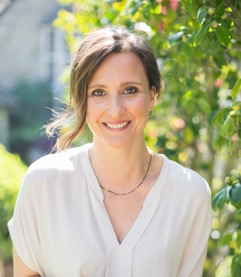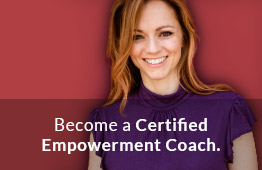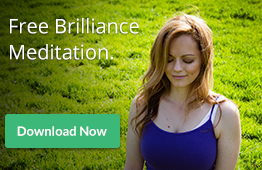In today’s Profiles in Brilliance, I have the great pleasure of introducing you to Amy Kessler, one of the graduates from my 2016 Brilliance Coaching Academy. Simply put, to know Amy is to love Amy.
I first met Amy at a mutual friend’s wedding. I was instantly put at ease by her heartfelt friendliness and delightful sense of humor. I quickly learned in our conversation that she too had spent a majority of her adult life in New York City. In her case, she had been working for veteran filmmaker Robert Richter (from the acclaimed Friendly-Murrow CBS team) producing, editing and distributing human rights documentaries. Her expert story-telling skills and capacity for deep listening that she honed in her film career made her a natural fit for an empowerment coach.
But her generosity of spirit, propensity for deep empathy, and willingness to be bravely transparent and open with her own vulnerabilities truly makes Amy an expert coach. She has that rare ability to go deep with a client and address the core of issues with heartfelt compassion while still holding space for the lightness of the new possibilities that lies within that person. A true gift.
I had the opportunity to sit down with Amy and ask her about her time in the Brilliance Coaching Academy and her experiences as an empowerment coach. Here’s what she had to say:
AL: Brilliance can seem like an esoteric concept at first. What does it mean to you? How do you root into it?
AK: For me, brilliance describes a general sense of well-being. I’m not stuck in the past or over worried about the future. I’m present and relaxed but also engaged and curious. I am where I need to be and want to be. Digging a little deeper, I’ve realized that this is how I feel when my thoughts, emotions and actions line up with one another in positive ways. For example, when I ride the bus to volunteer at US VETS, I feel myself smiling and wonder why I’m in such a good mood. I notice my stomach and chest feel expansive and warm like they are radiating heat that bubbles up toward my face. I notice my thoughts, “I’m doing something useful with my time by helping others.” I notice that my actions, the bus ride and subsequent hours I spend volunteering, is a direct expression of my thoughts and feelings. I light up because my thoughts, feelings and actions are in sync in a positive way.
AL: What would you say to people about owning their brilliance if they don’t even feel connected to it as a possibility?
 AK: Connect to something small but powerful. If your brilliance or goal feels like an overwhelming pipe dream, create a personal metaphor that you can connect with daily. In our training, you used the metaphor of the giant Sequoia tree, which starts as a tiny seedling but with time and patience that seedling grows into a strong giant. I have my own personal metaphor for when I’m feeling like I’ll never get to where I need to go. It began as a conversation with my sister’s boyfriend when I complained about how I often get stuck in the feeling of overwhelm. He told me about the White Stripes’ song Little Acorns: “One day she saw a little squirrel storing up nuts for the winter and she thought to herself, if that squirrel can take care of himself for the harsh winter coming on, so can I.” I don’t really like squirrels, on the whole, but the metaphor was helpful, although a little strange. That year, for my birthday, he gave me a small painted postcard by Mark Ryden of a young girl with a squirrel. It was a perfect, visual representation of that metaphor and that really hit home for me. I look at it every day to remind myself that even though my brilliance may feel far away, if that little guy has enough faith in himself, well then, maybe I do too.
AK: Connect to something small but powerful. If your brilliance or goal feels like an overwhelming pipe dream, create a personal metaphor that you can connect with daily. In our training, you used the metaphor of the giant Sequoia tree, which starts as a tiny seedling but with time and patience that seedling grows into a strong giant. I have my own personal metaphor for when I’m feeling like I’ll never get to where I need to go. It began as a conversation with my sister’s boyfriend when I complained about how I often get stuck in the feeling of overwhelm. He told me about the White Stripes’ song Little Acorns: “One day she saw a little squirrel storing up nuts for the winter and she thought to herself, if that squirrel can take care of himself for the harsh winter coming on, so can I.” I don’t really like squirrels, on the whole, but the metaphor was helpful, although a little strange. That year, for my birthday, he gave me a small painted postcard by Mark Ryden of a young girl with a squirrel. It was a perfect, visual representation of that metaphor and that really hit home for me. I look at it every day to remind myself that even though my brilliance may feel far away, if that little guy has enough faith in himself, well then, maybe I do too.
AL: To connect to one’s brilliance, there can often be a need to let go of old ways of being or old beliefs. Can you share something you had to “let go of” in order to really step into a deeper connection with your brilliance?
AK: Letting go of a long held belief is one of the hardest things to do and it’s not something that can happen in one sitting. When I began your course, I had already identified the main belief I held about myself that was inhibiting me from moving forward personally and professionally. It was simply, “I’m not smart enough.” Many people hold on tightly to some version of the belief that we are not enough, in some way. Admitting to these beliefs openly, feels enormously vulnerable. Not only are we ‘not enough’ but we may feel ashamed that we feel this way in the first place. It’s like a double whammy of self-distrust and shame that makes transforming these beliefs feel impossible. However, during our training, I found myself talking about the ‘I’m not good enough’ story in an environment that was unconditionally supportive, warm, generous and even fun. Together, we worked with this long held belief in a variety of ways and eventually, I was able to find and focus on a new belief that felt both positive and practical. With time, practice and guidance I was able to let go of the negative belief and begin focusing on the new one, but in order to do that you need a top rate support system. Thankfully, you provided such a support system through your leadership.
AL: Can you share a technique or concept from our training that really made a significant positive difference in your day to day life? What shifted for you?
AK: I remember when you guided me through a powerful and revelatory exercise called voice dialoguing. It was a new exercise for me, but it felt natural and interesting since I have a background in film-making. You asked me to imagine that my long held belief “I’m not smart enough” was actually a character in a movie. You then asked what that character looked like, to really flesh it out with as much detail as possible. For me, this was a mean, old curmudgeon with a cane, barking orders. Then, you asked me to create a new character to enter the scene, one that felt strong and loving, and to create a dialogue between the two. Without going into too much detail here, this technique helped me clearly understand that my long held belief was simply a story I was telling myself, an old and powerful one, but still just a story. This overwhelming belief that ruled my life now had a shape, a personality and needs of its own. If I wanted, I could choose to accept what it had to say or not. It was such a powerful exercise that I shifted almost immediately. I was no longer a victim. I felt empowered as I pulled that belief from the air and cast it in my own personal movie.
AL: Did you ever think you’d become a coach? Do you still use your other skills and background in your coaching career? How?
AK: I imagined becoming a therapist in high school but got into documentary film-making right out of college. I use my documentary values and skills in my coaching work all the time. They are both fields that try to understand the human experience. They have a similar goal, that of bringing more peace, justice and possibility to the world through deep listening, sharing of stories and organizing around them in positive ways. As a coach and creative, my task is the same; to collaborate with an open mind while also practicing values like honesty, compassion and creativity. Skilled filmmakers know how to create themes and emotions around a particular narrative. They help us understand and connect with one another, even if we have very different life experiences. Likewise, coaches are trained to help their clients understand the stories and beliefs that drive their behavior, so that they can weed them out and shift towards beliefs that bring about joy and empowerment.
AL: Is there anything that you would want every client to learn from your offerings, what would it be?
AK: I would like my clients to practice patience, compassion and self-responsibility with themselves on a daily basis. Developing a morning ritual where you can root into those values is key. As soon as I wake up in the morning, I give myself a direction for the day that feels positive and motivating. I make sure to ask myself, “What does patience and compassion feel like in my body; sound like in my head; and what’s one small thing I can do right now to express it?” If I can root into those values first thing, I can usually feel more centered, more brilliant, and less like a ping pong ball living reactively.
AL: Tell us about your approach to life coaching and your specialty area? Do you work with a certain group of people or with certain techniques? Are you offering any hybrid offerings?
AK: Your training was transformational because I learned to work with resistance and creativity blocks in new ways, not just with techniques but with essential principles as well. Today, I love to work with people in creative fields understand their own resistance so that they can tune in to their own intuition and move forward in powerful, authentic ways. I offer techniques like visualizations, emotional release or self-inquiry exercises, but what’s really inspiring is when a client comes up with their own technique. It’s such a gift to be there in the moment they begin to direct that creativity inwards, where new perceptions, choices, and paths reveal themselves.
AL: In the Brilliance Coaching Academy, we work on how to take what you’re learning and “make it your own”. Can you share one of the ways you’ve done that in your work?
AK: In our coach training, we worked with two, important questions: What is not working in my life right now? And, conversely, how do I want my life to be? Coaching tends to be forward thinking, as opposed to psychotherapy, for instance, which concentrates mainly on past experience. In coaching, we focus on our present situations and envision the change we want to see. You created a very effective methodology to work with these essential questions and help enact that change we want to see. I use it every day with my clients. However, more often than not, when my clients are confronted with these questions they automatically go back to their past and often get stuck there. I know for myself, change feels impossible because I don’t know how to let go of my past. So, I thought it might help if I could clearly see my past in more of a context. I decided to try out a new exercise with my clients that would help them see a big picture view of themselves that included their past, present and future. I call it the TimeWise exercise and I bring it out whenever I see someone getting stuck. Adding on to your initial questions, I now include; what do I need to understand about my past and let go of in order to make this change happen?
AL: Beautiful! What do you think is one of the biggest misconceptions you think people have about coaching?
AK: When I see a potential client for the first time, more often than not, they will tell me their story and then ask me to fix them. They’ll say, just tell me what to do and I’ll do it, I want a coach not a therapist! This signals to me that the client may not be ready or willing to do the work and take responsibility for their own well-being. The fix-it-quick mentality is a misconception about the work coaches do that we need to address in our initial conversations. You’ve said many times, this is not about fixing someone, because in coaching, we believe you’re not actually broken. It’s about helping the client see the coach-client relationship as a partnership based on mutuality and respect. If they can think of this working relationship as a team rather than a hierarchy, they will feel more empowered, and it’s important they understand that difference right away. I come from a family full of MD’s; so I often have to fight my own tendency to fix people by reminding myself that my clients hold their own wisdom and solutions, and it’s my job to the help bring them to the surface.
AL: Can you share a client success story? What was that like for you as their coach?
AK: I have a client who was very excited to tell me about a big meeting she had a work. She’s very uncomfortable in social situations and often opts to stay home rather than go outside. So, this important presentation she was about to give was a real pain point for her. She reported to me, with great surprise, that when she walked into her corporate office to deliver her presentation she felt a little bit nervous, but she didn’t freak out and start to imagine all the negative judgement that would inevitably fall her way. She simply acknowledged her feelings, stayed present and felt much more confident. When she told me that she believed this change was due to our work together, I pretty much melted onto the floor. It’s the most wonderful feeling in the world when I get to see the positive, cumulative effect of our work together. “Fullfilled” doesn’t come close to describing it!
AL: How can people get in touch with you to work with you further?
AK: People can email me through my website AmyKesslerCoaching.com or directly at amykesslercoaching@gmail.com.
So much gratitude to Amy for sharing your reflections with us. You’re a remarkable soul with one of the biggest hearts around. Thank you for all that you do to make our world a better place!
To learn more about the Brilliance Coaching Academy and how you can apply for the upcoming program beginning in July, click here. Or come join us for a free Open House on April 14th in Santa Monica to get a sample taste of the full training. You’ll also get a chance to speak to past graduates, including Amy, in person and learn about the diversity scholarship program. Please RSVP here for the Open House as space is limited. Thank you!










